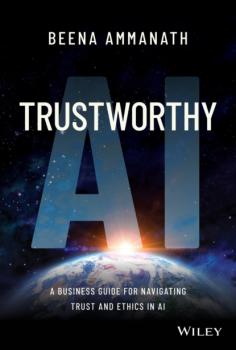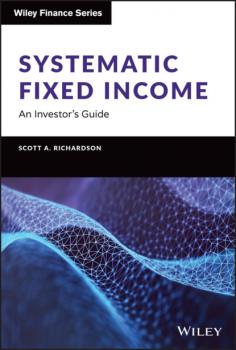John Wiley & Sons Limited
Все книги издательства John Wiley & Sons LimitedThe Climate City
THE CLIMATE CITY Provides professionals in finance, technology, and consulting with solutions for improving the quality of urban life under the changing climate The Climate City provides cutting-edge approaches for developing resilient solutions to combat the effects of climate change in cities throughout the world. Linking finance and technology to policy and innovation, this highly practical resource outlines a global framework for mitigating and adapting to climate change and for effectively planning and delivering a low-carbon future. This book addresses how cities can work effectively with each other to drive change, the importance of strong leadership and international cooperation, the role of innovative finance and technology to identify new economic opportunities, and more. Throughout the book, the authors address future trends such as the changing streetscape, connected infrastructure and eMobility, and autonomous vehicles, drones, and other emerging technologies. Designed to help all stakeholders build a pathway to a less resource-intensive future, The Climate City: Provides in-depth discussion of the technological, financial, and practical aspects of tackling climate change in urban environments Demonstrates why the global economy needs to transition to a low-carbon economy Describes the role of financial institutions and how they can allocate capital more efficiently Explains why and how challenges and priorities are different in the global north and south Illustrates how data can improve the ways cities use energy resources and operate transportation systems Discusses how citizen action can drive a new, more meaningful way of living in cities Features insights from political leaders such as the Mayor of Copenhagen, the Mayor of Los Angeles and the former Mayor of London and Prime Minister of the United Kingdom The Climate City is essential reading for city planners, policy makers, technologists, consultants, finance and business professionals, and general readers wanting to improve the cities in which they work and live.
The Digital Agricultural Revolution
THE DIGITAL AGRICULTURAL REVOLUTION The book integrates computational intelligence, applied artificial intelligence, and modern agricultural practices and will appeal to scientists, agriculturists, and those in plant and crop science management. There is a need for synergy between the application of modern scientific innovation in the area of artificial intelligence and agriculture, considering the major challenges from climate change consequences viz. rising temperatures, erratic rainfall patterns, the emergence of new crop pests, drought, flood, etc. This volume reports on high-quality research (theory and practice including prototype & conceptualization of ideas, frameworks, real-world applications, policy, standards, psychological concerns, case studies, and critical surveys) on recent advances toward the realization of the digital agriculture revolution as a result of the convergence of different disruptive technologies. The book touches upon the following topics which have contributed to revolutionizing agricultural practices. Applications of Artificial Intelligence in Agriculture [/b](AI models and architectures, system design, real-world applications of AI, machine learning and deep learning in the agriculture domain, integration & coordination of systems and issues & challenges). IoT and Big Data Analytics Applications in Agriculture (theory & architecture and the use of various types of sensors in optimizing agriculture resources and final product, benefits in real-time for crop acreage estimation, monitoring & control of agricultural produce). Robotics & Automation in Agriculture Systems (Automation challenges, need and recent developments and real case studies). Intelligent and Innovative Smart Agriculture Applications (use of hybrid intelligence in better crop health and management). Privacy, Security, and Trust in Digital Agriculture (government framework & policy papers). Open Problems, Challenges, and Future Trends. Audience Researchers in computer science, artificial intelligence, electronics engineering, agriculture automation, crop management, and science.









